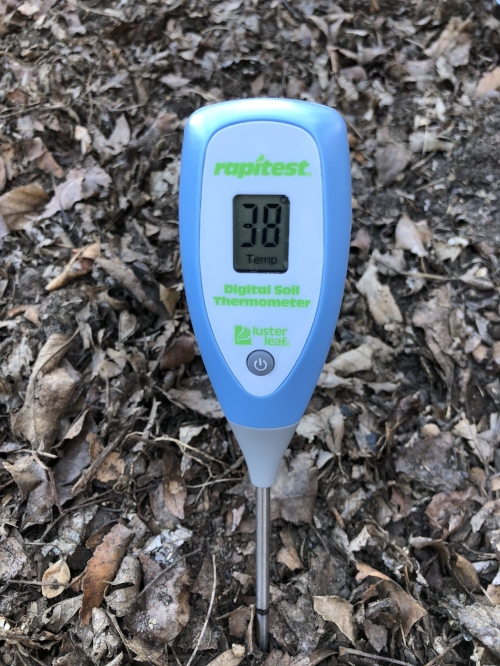Seeds are smart. They know when the conditions are right for germination. Mother Nature tends to have a pretty forgiving nature, but she prefers a partner in the garden who will work WITH her rather than AGAINST her! One way to be a better partner is to become aware of the role that soil temperature plays in seed germination. If the soil is too cold, seeds will fail to germinate or the germination process will be SLOW! If the soil is too warm, seeds will fry! So be a good partner and get a soil thermometer. For kids, the digital ones are easiest to read.
Find out the ideal soil temp range for the seeds you want to plant by visiting the Cornell University Vegetable Growing Guides for over 58 vegetables. Click on the veggie, and the guide will provide information on growing that particular vegetable, including the optimum soil temperature range.
My grandkids love science, especially doing experiments and working with scientific tools, so they eagerly head out to the garden to take soil temperatures for me, which will vary from location to location. Sunny spot? Higher soil temps. Shady spot? Cooler temps. Raised beds generally warm up sooner than adjacent areas that are level ground. Here's a handy chart you can give to the kids on a clipboard as they go about temperature testing.

